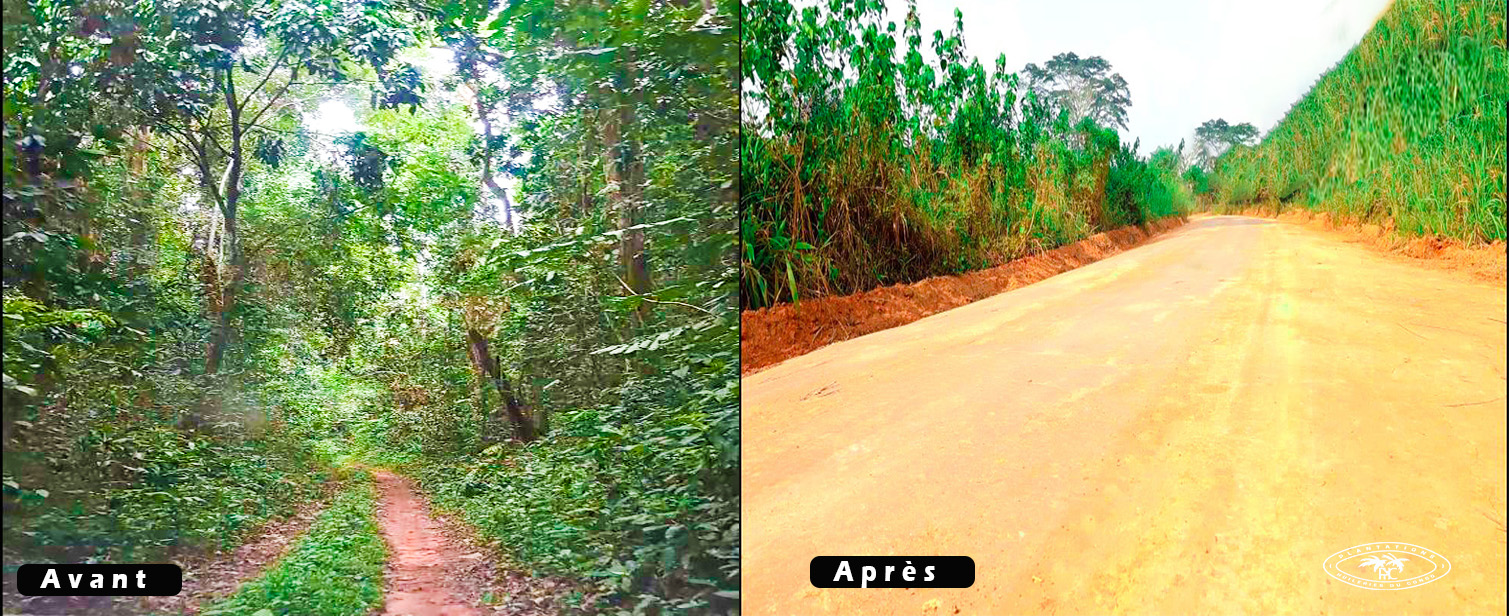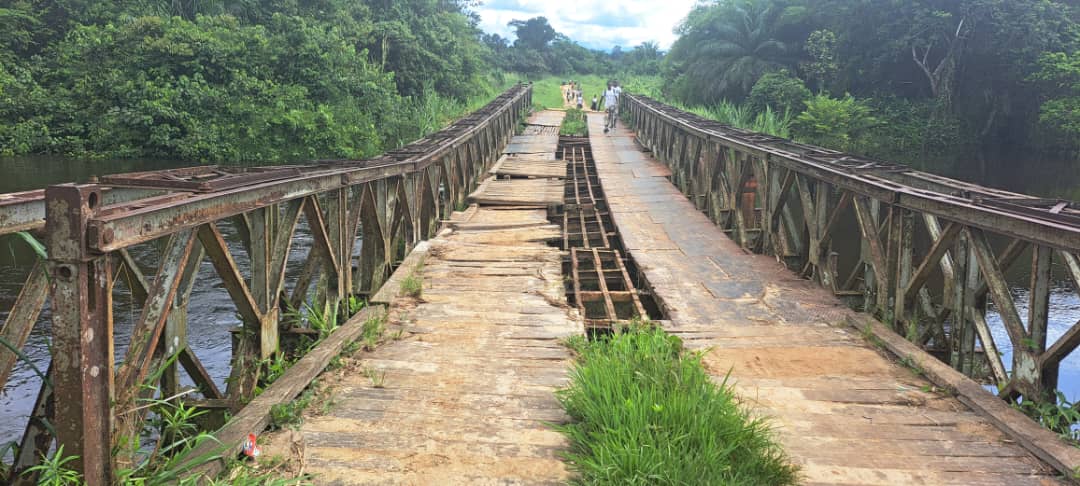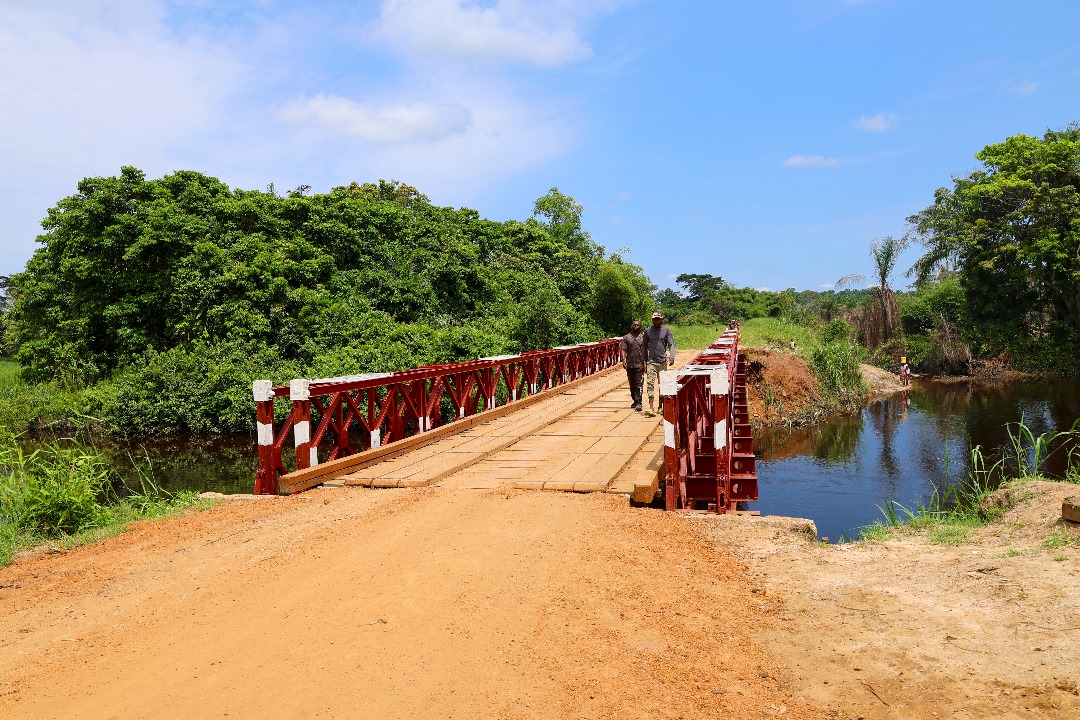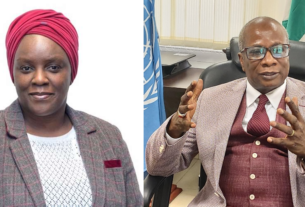In a region where every kilometer of open road and every bridge built can transform daily life, Plantations et Huileries du Congo (PHC) has marked a decisive turning point in Tshopo Province. This April, the company inaugurated two major infrastructures: the Bokala-Wamba road and the Loleka bridge—tangible symbols of its concrete commitment to local communities. These projects go beyond connecting villages; they pave new paths toward development, social cohesion, and hope.
Both projects were carried out as part of the social clauses agreed with local communities, aiming to open up the territories of Yahuma, Basoko, and Isangi, while fostering social cohesion and economic exchange.
Bokala-Wamba: a road that revives the local economy
Stretching 38 kilometers, the Bokala-Wamba road crosses through the groupings of Bokala and Bogenda, in the heart of Basoko territory. Its rehabilitation has provided a breath of fresh air to local populations by improving the movement of people and goods.
The impact is immediate and deeply felt on the ground, as testified by Alphonse Bosuki Mbanga, Chief of the Bokala groupement: “We thank PHC for honoring its commitments to our community. This road is a vital artery for our development. It will allow us to evacuate our agricultural products more easily, intensify trade, and strengthen cohesion between villages.”

For PHC, this road is more than just infrastructure—it is a fulfilled promise and a clear signal of its intention to build a brighter future alongside communities. “The Bokala-Wamba road connects the aspirations of an entire population to a better future. It is a lever for economic, social, and human growth,”emphasized Darly Ifali, Area Social Manager of PHC Lokutu.
Loleka Bridge: a new link for territorial unity
Between the territories of Yahuma and Isangi, the Loleka bridge stands as a new connection. Spanning 30 meters and built to withstand loads of up to 20 tons, it brings an end to years of logistical and social isolation for surrounding communities. What was once a daily barrier is now a driver of integration and development.


The inauguration ceremony, marked by traditional rituals and strong community participation, highlighted the strategic importance of the project. “This bridge is a precious asset. I call on all local populations to protect it and use it responsibly. It must last over time and serve our children as it serves us today,” declared Baudouin Likasakoy Likuku, chief of Bolinga sector.
The bridge also carries significant economic implications, as noted by Achille Mulandu, deputy site manager of PHC Lokutu: “This bridge does not only connect two banks: it connects lives, territories, and opportunities. It will play a central role in local development by facilitating trade between the territories of Yahuma and Isangi, and even with the city of Kisangani.”
PHC: a catalyst for local progress and sustainable transformation
By investing where needs are most urgent, PHC reaffirms its position as a committed actor in sustainable development. The rehabilitation of the Bokala-Wamba road and the construction of the Loleka bridge are more than infrastructure—they are catalysts for change, vehicles of hope, and foundations for a more equitable future.
PHC is not just building roads: it is paving the way to a better tomorrow.



